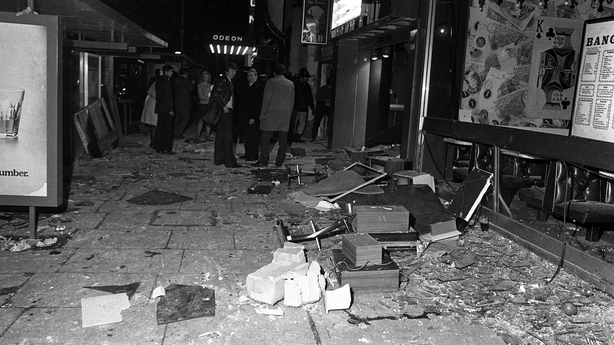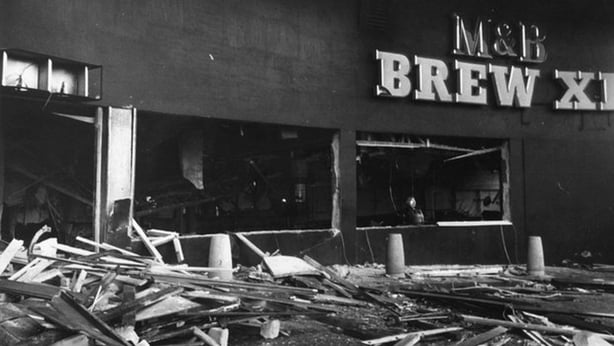Memorial services have taken place in Birmingham in England to mark the 50th anniversary of the IRA's 1974 pub bombings in the city.
Twenty-one people died when the bombs exploded in the Mulberry Bush and Tavern in the Town pubs on 21 November 1974.
More than 180 people were also injured in the blasts, which were carried out at the height of an IRA bombing campaign in England's West Midlands.
A third bomb was planted near the Barclays bank on the Hagley Road but failed to properly detonate that night.

An official memorial service was held at 1.15pm in the city centre at the 'Tree’ sculpture memorial, which was erected in memory of the victims six years ago.
The Birmingham Irish Association asked people to pause for a minute at 2pm to remember those who died in the attack.
St Philip’s Cathedral held a memorial service led by both the Catholic Archbishop and the Church of England Bishop of Birmingham. It began at 5pm and featured hymns and prayers and also be open to the public.
The attacks were the deadliest post-World War II attack on British soil, until the 7/7 London blasts in 2005.
The two bombs detonated in massive explosions between 8.15pm and 8.20pm, killing 19 on the night - eight in the Mulberry Bush, at the foot of the city’s Rotunda landmark, and two outside the nightspot.

Another nine died in the Tavern In The Town, which was a large pub in the basement of the same building as the tax office, King Edward's House.
Two people died later of their injuries, with 12 of the victims under 25.
In the days after the 1974 attack, six Irish men were detained, charged and subsequently imprisoned for the bombings.
They became known as the Birmingham Six and following years of campaigning by their families, friends and supporters their wrongful convictions were quashed in 1991.
However, the real perpetrators have never been caught.
In 2016, a UK coroner ordered fresh inquests into the bombings after a campaign by the relatives of the 21 people killed in the attack.
It took place three years later, with the inquest ruling that the victims were killed unlawfully by the IRA, however it did not determine the identities of those responsible.






